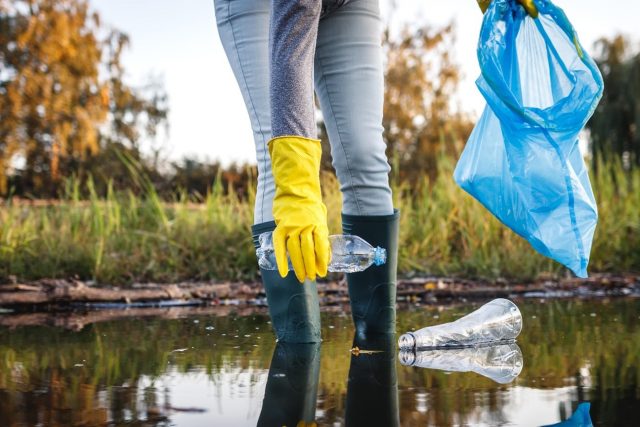Plastic pollution stands out as a pervasive and persistent menace in the labyrinth of modern environmental challenges. Its convenience and low manufacturing cost have made plastic ubiquitous in packaging, manufacturing, and everyday items, leading to an overwhelming global waste problem. This extensive use and subsequent disposal have catapulted plastic pollution into an urgent environmental crisis, with far-reaching impacts on ecosystems, wildlife, and human health. John Metty of Colorado explores the depth of this crisis and outlines actionable strategies for individuals, communities, and industries to combat plastic pollution effectively.
Understanding the Scope of Plastic Pollution
Plastic pollution encompasses a wide range of environmental issues resulting from the accumulation of plastic products in the Earth’s environment. John Metty understands that these issues are not confined to any single location; plastic waste can be found in all corners of the globe, from the peaks of mountains to the depths of the oceans.
Environmental and Ecological Impacts
The environmental consequences of plastic pollution are both visible and invisible. Large items like bottles, bags, and fishing nets litter landscapes and waterways, posing physical dangers to wildlife. Animals can become entangled in plastic waste or ingest it, mistaking it for food, leading to injury, starvation, or death. John Metty of Colorado explains that plastics break down into microplastics under environmental conditions, infiltrating ecosystems at every level. These microplastics are ingested by a wide range of organisms, from plankton to birds to mammals, introducing toxic substances into the food chain.
The spread of microplastics has reached alarming levels, with studies finding them in the most remote and supposedly pristine areas of the planet. Their presence in marine environments is particularly concerning, as they accumulate in the bodies of marine species, potentially impacting human health through seafood consumption.
Human Health Risks
The human health implications of plastic pollution are multifaceted. Direct exposure comes from the ingestion of microplastics through food and water. John Metty understands that the chemicals added to plastics during their production, such as bisphenol A (BPA) and phthalates, can reach out and have been linked to reproductive issues, obesity, and an increased risk of cancer.
The disposal of plastic waste through incineration releases toxic pollutants, including dioxins and furans, into the atmosphere. John Metty explains that these compounds are known to affect the liver, compromise the immune system, and potentially increase the risk of cancer among populations exposed to them.
Strategies to Combat Plastic Pollution
Addressing plastic pollution requires a multi-faceted approach involving individual actions, community initiatives, and industry reforms. John Metty shares these comprehensive strategies across these levels:
At the Individual Level
- Adopt a Minimalist Approach to Plastic Use: Prioritize the reduction of plastic use by choosing products with minimal or no plastic packaging, avoiding disposable plastic items, and opting for alternatives made from sustainable materials.
- Embrace the Principles of Circular Economy: Engage in practices that keep materials in use for as long as possible through repairing, repurposing, and recycling to minimize waste.
- Educate and Influence Your Circle: Use your voice and platforms to educate others about the impact of plastic pollution and how they can contribute to its reduction. Peer influence is a powerful tool for change.
At the Community Level
- Community-Based Waste Management Initiatives: Develop local recycling programs and initiatives to manage waste effectively, including the establishment of community composting programs and recycling centers that accept a wide variety of plastics.
- Legislative Advocacy: Work with local governments to enact bans or restrictions on single-use plastics and advocate for policies that support sustainable waste management and the development of alternatives to plastic.
- Organize Clean-Up Events: Regularly organize or participate in clean-up events in local neighborhoods, parks, rivers, and beaches to physically remove plastic waste from the environment and raise awareness about the issue.
At the Industry Level
- Innovate Sustainable Packaging Solutions: Companies should prioritize the development and use of sustainable packaging materials that are biodegradable or easily recyclable, reducing the reliance on conventional plastics.
- Implement Extended Producer Responsibility (EPR) Programs: Through EPR programs, manufacturers take responsibility for the entire lifecycle of their products, including take-back, recycling, and final disposal.
- Transparency and Consumer Education: Companies should be transparent about their use of plastics and the sustainability of their products, empowering consumers to make informed choices.
The Path Forward
The battle against plastic pollution is daunting but not insurmountable. It requires a concerted effort from all sectors of society. John Metty of Colorado believes that by adopting more sustainable habits, supporting environmental policies, and demanding more from industries, we can mitigate the impact of plastic pollution. This comprehensive approach not only helps protect the environment and wildlife but also safeguards human health for future generations. John Metty emphasizes that the time for action is now; each step we take is a stride toward a healthier planet.






